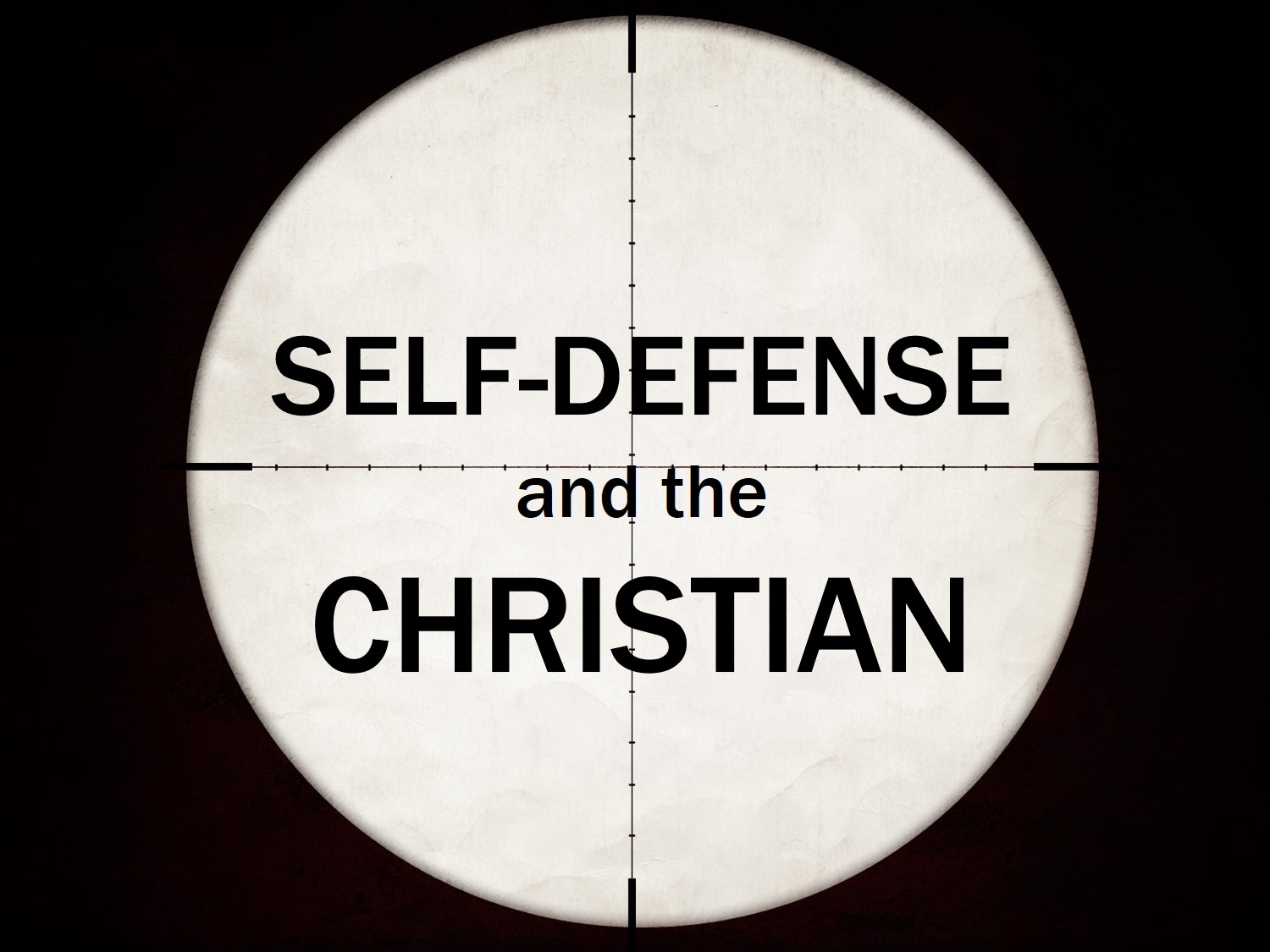Blog
The Work of God Today
Wednesday, July 17, 2019

Sometimes, I think brethren tend to a kind of Christian deism. They talk like God did all of this amazing stuff thousands of years ago, but since the completion of the written word, He has backed off and left the world to its own devices. Now, there’s some truth to this. I don’t think any of us should expect to see miraculous signs today. However, it doesn’t consider all of the other things that aren’t miracles that God still does.
It’s important for Christians to understand this. I was talking to Billy Tanner a few weeks back, he suggested that we would all benefit from a study of the topic, and I agreed. By the way, as always, if you want teaching on some topic, let me know, and I’ll do my best to work it in. I envision four sermons in this series, one each for the Father, the Son, and the Spirit, but I’d thought I’d kick things off by considering the works that all the persons of the Godhead are involved in. With this in mind, let’s look at the work of God today.
The first of these works that I want to examine is that GOD KNOWS US. Let’s read from Psalm 139:1-3. This is hard for our limited minds to understand. Because God is everywhere and knows everything, He constantly is with us, and He knows everything that we do, say, and even think. He knows us better than our parents. He knows us better than our spouses. He knows us better than anybody.
If we truly understand this, it can be a source of tremendous comfort for us. It means that if we need something, He knows all about our needs before we even ask. When we are in the middle of temptation, He is right there in the middle of it with us, and He surely will strengthen us if we ask Him. When we are lonely, we never truly are alone. When we spend years or decades fighting to do the right thing, even when it’s hard, He knows our struggles, and He is pleased with our desire to be faithful. When we are suffering, He is there to share and ease our pain. On and on and on—every blessing we can know comes from the presence of God in our lives.
Of course, these blessings are for the righteous, and if we are not living righteously, then God’s perfect understanding of us is a source not of comfort, but of terror. He sees the evil we do in public, but He also sees our secret sin. It is impossible for us to hide the tiniest trace of evil from Him. When Judas plotted to betray His Lord, Jesus knew it all. When Ananias and Sapphira lied to make themselves look good, they quickly found that they were lying not to men, but to the Holy Spirit.
It’s vital that we understand all this, because God’s perfect knowledge tells us everything we need to know about how we should live our lives. Do you want to go through life constantly being terrified because God is watching? Me neither! On the other hand, if we are willing only to live for Him, His presence will become the source of unfailing joy.
Second, GOD CALLS US TO HIMSELF. Here, let’s look at a familiar text, Acts 2:38-39. I want to focus, though, not on the baptism part, but on the promise-of-salvation-and-life part. Peter says that this promise is for those who are near, the Jews, and for those who are far off, the Gentiles. Indeed, the promise is for everyone whom God calls to Himself. Whom does God call? Everybody!
To me, this is one of the most beautiful things about Christianity. The expression of God’s love is universal. We could be a no-counter in the world’s eyes. Doesn’t matter. God loves us. We could be poor. Doesn’t matter. God loves us. We could be the most wretched, vile sinner under heaven. Doesn’t matter. God loves us.
That’s easy to say. I can tell somebody, “I love you,” yet have a heart filled with indifference and contempt. That’s not how the love of God is. Instead, He has proven His love for us by inviting us to live with Him forever. Jesus offered Himself to make that possible. I think the idea that the Bible is a love letter can be carried too far, but it is nonetheless true that everything that the Holy Spirit ever has revealed proclaims God’s love and the good news of His invitation to us.
This too is something that ought to change our lives once we understand it. The world assigns value to us and offers meaning to our lives only to the extent that we are useful. If you can hit a ball over a fence or shoot another ball through a hoop, the world will throw millions of dollars at you. Then, once your career is over, the world doesn’t care if you end up sleeping on a heating grate.
Not so with God. Every one of us is intrinsically precious in His sight. He wants all of us to live with Him so that He can cherish us for eternity, and that is the definitive statement of what a human being is worth.
Finally, HE INDWELLS US today. Turn with me to Romans 8:9-11. For some reason, discussion of indwelling tends to center around the indwelling of the Holy Spirit, but this text makes it clear that all three persons of the Godhead are involved. In v. 9, we’ve got the Spirit of God, generally identified as the Holy Spirit, and the Spirit of Christ. Then, in v. 11, we’ve got the Spirit of Him who raised Jesus from the dead, and that’s the Father. There are also plenty of other passages that talk about the Father and the Son abiding in us.
So. . . what does this mean? I think the key to understanding any kind of spiritual indwelling is to go back a chapter and look at Paul’s discussion of the indwelling of sin in Romans 7. When he says that sin indwelt him, he doesn’t mean that he had a little sin demon that lived inside his head. Instead, he means that sin dominated, controlled, and enslaved him.
That’s what the indwelling of the Spirit, whichever Spirit you pick, is about too. It is about God having control and dominion in our hearts. Everybody is either indwelt by sin or indwelt by God. There is no third way. One of the two is always going to be controlling us.
Obviously, one of the means that God uses to exert His influence and control is the word. Through the word, He instructs us in righteousness and motivates us to obey. Anyone who does not seek God in His word will not be indwelt by Him.
It may be that God operates on our hearts in other ways as well. For instance, in James 1, James promises that God will give us wisdom if we pray for it in faith. Is that prayer answered only as we study the word? I don’t know, and frankly, I don’t think the answer to the question is that important. So long as I can be confident that God will answer my prayers, I’m not concerned with how He does it.
Summaries, Job 27-31
Tuesday, July 16, 2019

Job 27 begins with Job insisting that he is telling the truth and that he has no problems telling the truth because his conscience is clear. He acknowledges that as a rule, God sends punishment against the wicked. Even though he appears to prosper and heap up riches for a little while, his life doesn’t have stable foundations and he eventually will lose everything.
Job 28 gets a lot more flowery as Job turns his attention to, of all things, mining. He spends the first 11 verses describing man’s ability in searching out the things that are hidden in the earth. No other creatures can see it, but mankind will dig out mines and dam up subterranean streams to extract ore and gemstones.
By contrast, wisdom is impossible to discover. You can’t find it, nor can you buy it. Neither the living nor the dead possess it. Only God, who knows and understands everything, possesses wisdom, and His wisdom is to tell us to fear Him and turn away from evil.
Job 29 revisits Job’s formerly blessed condition. Before, he says, God watched over him, protected his children, and gave him prosperity. In the city, young and old alike listened to him and respected him. Everyone honored him because he consistently protected the vulnerable and weak and treated them righteously. He believed that because of his goodness, he would live a long time, be satisfied with life, and die an honorable death. Others sought out his advice and he had a high status in society.
Job 30 contrasts those former blessings with his current misery. Now everyone laughs at and mocks him. This includes not only the respectable but the worthless, men of so little value that they have been driven out of the community to scratch out a living in the wilderness. Even people like that now mock him and spit on him, so that his honor has gone along with his prosperity.
However, Job’s biggest problems come not from men but from God. It is God who truly has been cruel to him, and he anticipates that he will die because of God’s disfavor. Nonetheless, he still cries out for help, anticipating that he will receive the same aid he has given to others. In the meantime, though, his suffering continues.
Job 31 contains Job’s great defense of his conduct. It has been called “ the definition of the virtuous man” in the same way that Proverbs 31 is the definition of the virtuous woman. In it, Job insists poetically that he has shunned lust (31:1-4), deceitful business dealings (31:5-8), adultery (31:9-12), unjust treatment of his servants (31:13-15), miserliness toward the poor (31:16-20), injustice toward orphans (31:21-22), covetousness and idolatry (31:23-28), vengefulness (31:29-30), mistreatment of strangers (31:31-32), secret sin (31:33-34), and misuse of land (31:38-40). If he has done any of these things, he calls curses down on himself according to the sin that he has done. Only a man with a clear conscience would dare say such things!
Scriptural Silence and the Burden of Proof
Thursday, July 11, 2019

In my life, I’ve had training in logic from two main sources: the church and my secular education. The further I progressed, the more I realized that the same principles were taught in both settings. I used the same canons of logic in formal debate and law school that I saw preachers use in establishing Biblical authority.
Admittedly, the Lord’s church has developed its own weird (and unhelpful) jargon over the past 200-odd years. Nobody else talks about direct command, approved example, and necessary implication. Because of this, many brethren have concluded that we’re doing something logically unsound. In reality, the jargon is nothing more than a mask over universal principles of reasoning. We reach the same conclusions that anyone who engages the text logically will reach.
Take, for instance, what we call the silence of the Scriptures. To the argument, “The Bible doesn’t say we can,” many will indignantly reply, “Well, the Bible doesn’t say we can’t either!”
That counterargument may be emotionally satisfying, but it has a fatal flaw. It fails to consider who has the burden of proof. Outside the realm of religion, that burden of proof is universally understood to lie with the affirmative.
This holds true in formal debate. The affirmative has the responsibility of establishing the truth of the resolution that is the subject of the debate. That’s their burden of proof. If they never make a prima facie case for the resolution, the negative wins by default, even if the negative doesn’t say a word.
In the same way, in criminal law, the prosecutor has the burden of proof. He is required to establish beyond a reasonable doubt that the accused committed the crime. That’s what lies behind the saying, “Innocent until proven guilty.”
Conversely, the defense attorney is not required to establish the innocence of the accused in order to secure an acquittal. His job is to poke holes in the prosecutor’s case until reasonable doubt exists. This is why juries in such cases return a verdict of “Not guilty” instead of “Innocent”. They don’t have to know that the accused is innocent; they merely have to doubt that he’s guilty. A not-guilty verdict is another way of saying, “The prosecutor didn’t meet his burden of proof.”
The silence of the Scriptures is a burden-of-proof argument too. Silence as such proves nothing. However, if the Scriptures are silent concerning, say, the use of instruments of music by Christians in worship, that silence still is extremely significant. It shows that advocates of instrumental music do not have the evidence they need to argue their case. They will fail not because the silence of the Scriptures is dispositive, but because silence means that they will be unable to meet their burden of proof. In emphasizing Scriptural silence, we are skipping analytical steps, but the conclusions we reach are sound.
My answer, then, to those who want to introduce some new practice is the same as the answer of the negative in a debate. It is the same as the answer of the defense attorney. You say that this is right? Fine. Prove it.
If, instead, you try to hold me responsible for proving a negative, you are implicitly acknowledging that your case is impossible to make.
Re-Creating the Corinthian Church
Wednesday, July 10, 2019

I’m currently in a Sunday-morning Bible class that is studying 1 Corinthians. As the teacher observed, if any church in the New Testament has a bad name, it is the church in Corinth. Only the church in Sardis can compare, and we have much more information about the misdeeds of the Corinthian brethren. In fact, Christians today will often use the problems of the church in Corinth as part of an appeal to church unity. The argument goes, “If first-century Christians were supposed to stick it out in a rotten church like Corinth, we shouldn’t leave our not-nearly-as-rotten congregations today!”
Less frequently, though, do we pause to ask why the church in Corinth was the way it was. We don’t see evidence of the same kind of problems in the church in Lystra, for instance, and I think it’s because the Lystran congregation wasn’t made up of the same kind of people.
Many of the churches that Paul established had a high percentage of Jews and so-called God-fearers, Gentiles who believed in the God of Israel but weren’t willing to become proselytes because of the social implications of circumcision and food restrictions. Thus, Paul could appoint elders in all of the churches of the first missionary journey almost immediately because many of the “new” converts had been living righteous lives for decades.
Not so in Corinth. Unlike other accounts of evangelism success in Acts, Acts 18 does not mention large numbers of God-fearers obeying the gospel. Some Jews did, but most remained hostile. Instead, the Corinthian church contained significant numbers of people who came out of the wicked lifestyles mentioned in the doleful catalogue of 1 Corinthians 6:9-10: the sexually immoral, idolaters, adulterers, practitioners of homosexuality, and so forth.
There is also evidence in 1 Corinthians that many Corinthian disciples were former members of pagan mystery cults who tried to import mystery-cult practices into the worship of Jesus. Not surprisingly, elders do not appear in any of the Biblical accounts of Corinth. The necessary baseline of spiritual maturity wasn’t present.
It is also hardly surprising when a church with many converts from the world with all kinds of baggage has serious problems. However, let’s not miss the forest for the trees here. Corinth was a church WITH MANY CONVERTS FROM THE WORLD. Today, we may pride ourselves on how well behaved our congregations are compared to Corinth, but the good behavior is due to the near absence of new converts.
Here, I fear, is one of the underlying reasons for the near-universal failure of the Lord’s church in the United States to be evangelistically effective. We have our nice little churches, full of nice people from the right social classes, and we don’t want to reach out to the have-nots with all kinds of lifestyle problems, even though they are the ones most likely to listen.
Do you want to go to church with somebody who thinks incest is a grand idea? Do you want to go to church with people who are so disputatious they sue each other left and right? Do you want to go to church with people who view Christianity as a way to reject the rules of polite society?
Exactly.
If we want to re-create the first-century church, we have to be willing to re-create the Corinthian church. Yes, dealing with converts with baggage can be horrendously frustrating (just ask Paul!), but if we want to have evangelistic success, we can’t go to the folks who think they’re well. We have to go to the folks who know they’re sick.
Self-Defense and the Christian
Tuesday, July 09, 2019

Last week, I did something I’ve never done before. I bought a firearm. There were many reasons why I did this, but ultimately, it was because of my desire to protect my family if the need arose.
In making this decision, I had to reckon with the words of Jesus in Matthew 5:38-41. For centuries, people have understood this passage to mean that it is wrong for Christians to use violence, even if they are defending themselves. If that’s what the test requires, brethren, that’s what we have to do. We can’t pretend like this passage doesn’t exist and do what we want anyway. If we defend ourselves, and it’s against the will of Jesus, we are no different from anyone else who chooses to defy His will.
However, before we reach that point, we have to decide whether that is, in fact, what the text is saying. Just a few verses up in Matthew 5, Jesus tells us to tear out our sinful eyes and cut off our sinful hands. We know that isn’t meant to be literal, and it may well be that turning the other cheek doesn’t mean what it appears to mean either. Let’s explore this issue as we consider self-defense and the Christian.
It’s appropriate to open this exploration by looking at some PROBLEMS WITH THE LITERAL READING. Why shouldn’t we understand this text as a general prohibition of self-defense? I see three issues with that reading, and the first of these is that it doesn’t correct the way that the Jews were misreading Scripture.
“An eye for an eye,” after all, is taken from the Law of Moses in Exodus 21:24, and in that context, it’s not about self-defense or even personal revenge at all. Instead, it’s a standard for determining the severity of judicial punishment. The Jews of Jesus’ time are taking this judicial standard and saying, “We have the right to dish out punishment ourselves.” If “Turn the other cheek” is about self-defense, it does not correct this misreading of Scripture. Instead, it is introducing an entirely new topic, and for Jesus, that would be extremely sloppy logic.
Second, this reading doesn’t fit with the rest of Jesus’ answer. In Matthew 5, He spells out three ways that His disciples are not to resist evil: by turning the other cheek, by not fighting lawsuits, and by going the second mile. Of these three, the second two are about state action. Famously, Roman soldiers had the right to compel peasants to carry their gear for one mile. Similarly, lawsuits are part of the machinery of government, and just as they do today, rich people in Jesus’ time commonly used them to oppress the poor. If the last two parts of Jesus’ answer concern the government in some way, that should at least leave us open to the possibility that turning the other cheek is about the government too.
Third, much of the rest of Jesus’ teaching presumes that people will defend themselves. Look, for instance, at Luke 11:21-22. This parable, of course, is not about self-defense, but it does reflect a cultural assumption that a strong man will fight to protect his home. Jesus does not describe him negatively for doing this, as opposed to the unrighteous steward and the unjust judge in other parables. Instead, He takes the strong man’s action for granted.
If the obvious reading is untenable, we need to look for A STRONGER READING instead. A passage that will get us going in the right direction is Lamentations 3:25-30. In context, of course, Jeremiah is mourning the destruction of Jerusalem by the Babylonians and the people being led off into captivity. In that situation, his inspired advice is to submit to the Babylonians and wait for God to have mercy. That’s what v. 27 is talking about when it says that it’s good for a man to bear the yoke. As part of that, Jeremiah says, the Jews need to give their cheeks to those who are smiting them—the same idea that Jesus is promoting in Matthew 5.
In fact, I believe that in Matthew 5, Jesus is quoting Lamentations 3. He’s telling the Jews of His day to submit to an unjust Roman government in the same way that Jeremiah told the Jews of his day to submit to the unjust Babylonians. “Turn the other cheek” is about submitting to the government.
This reading resolves all of the problems we identified earlier. First, under this reading, Jesus is correcting the Jewish misunderstanding of Exodus 21. He’s saying, “Don’t take the law into your own hands. Honor the government, even when it is oppressive.” Second, “Turn the other cheek,” now fits thematically with “Let them have your coat,” and “Go the second mile.” All three now concern the disciple’s responsibilities to the government. Finally, it does not call into question the accepted practice of defending one’s family and property from criminals.
Additionally, this ties into one of the major themes of Jesus’ ministry. Among other reasons, God sent Jesus when He did as a last-ditch attempt to turn the Jews aside from a disastrous rebellion against Rome. Jesus warns them repeatedly to seek a heavenly, not an earthly, kingdom. If “Turn the other cheek,” is a warning against rebellion too, that fits perfectly.
This leaves us with THREE APPLICATIONS. First, just as the Jews were not allowed to take revenge into their own hands and justify it by misapplying the Law, we aren’t allowed to take revenge into our own hands either. Christians are supposed to be merciful and forgiving rather than vengeful. If we have opportunity, we are to do good even to those who have done evil to us. Punishing wrongdoing is God’s job and the government’s job, not ours.
Second, like God’s people in the first century, we are to submit to the government. We are to honor the laws and pay our taxes, even when we believe those laws are unjust and the taxes are oppressive. Certainly, our brethren 2000 years ago faced unjust laws and oppressive taxes to a degree we can hardly imagine, but they never took up arms against Roman tyranny.
Sometimes, I hear people arguing that in our country, the Constitution is the true government, so we have the right to rebel against a government that has gone beyond the bounds of the Constitution. Frankly, I think that’s sophistry. As Peter says in 1 Peter 2, we are not merely to honor the law. We are to honor the emperor. The godly obey the man in charge, even if he’s as crazy and evil as Nero. Of course, this is not true when the law directly contradicts the commandment of God. Then, our responsibility is to obey God rather than men.
Finally, we have to make up our own minds about gun ownership and self-defense. If Matthew 5 does not offer a clear command on the subject, we must be guided by our own conscience. There’s no reason to criticize the Christian who resolves that they can never take life, no matter what, nor is there reason to criticize the Christian who is willing to kill to protect the life of another. This is a decision that we must make thoughtfully and prayerfully, but if we do, whatever we choose will be to the glory of God.


